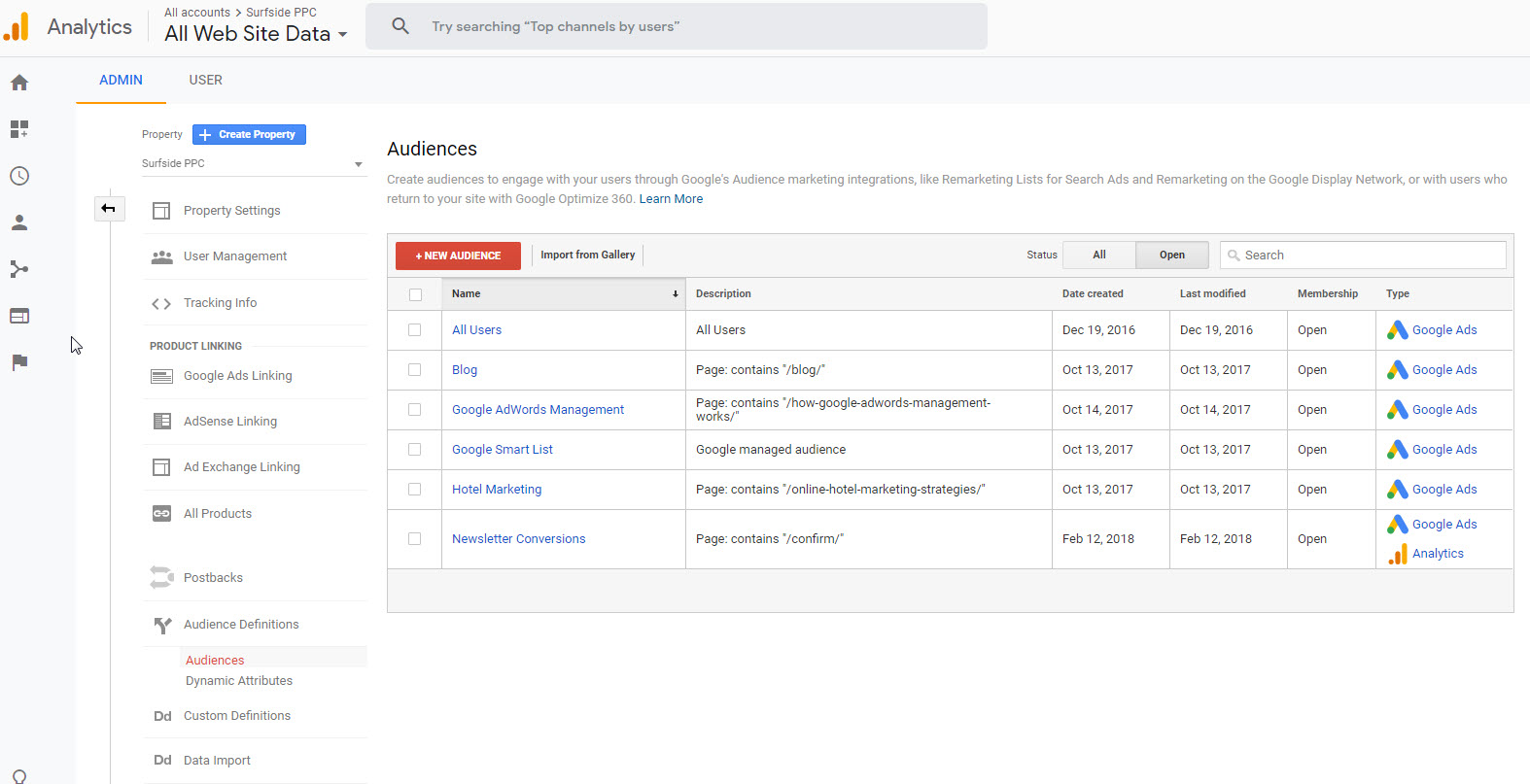Maximize Your ROI With Remarketing in Google Analytics
In the realm of digital marketing, the use of remarketing strategies within Google Analytics has verified to be a powerful device for boosting roi. By harnessing the power of customer information and customizing ads to details audience segments, businesses can substantially magnify their conversion rates. The real essential lies in the art of precision - comprehending customer behavior, crafting engaging advertisements, and continuously refining strategies to drive ideal outcomes. The trip to making the most of ROI via remarketing is a nuanced path paved with insights and possibilities that can improve the trajectory of your advertising and marketing ventures.
Comprehending Remarketing in Google Analytics
Comprehending remarketing in Google Analytics is crucial for optimizing your electronic marketing approach. Remarketing allows you to target customers who have formerly seen your site or interacted with your app, presenting them with tailored ads as they search various other websites or make use of other applications within the Google Show Network. This approach helps maintain your brand top of mind and urges customers to return to your website, inevitably increasing the likelihood of conversion.
By utilizing Google Analytics, you can track the efficiency of your remarketing campaigns, acquiring valuable insights right into individual behavior, interaction, and conversions. This information allows you to improve your bidding, messaging, and targeting methods to improve the general effectiveness of your campaigns.
Additionally, understanding the different kinds of remarketing listings readily available in Google Analytics, such as typical, vibrant, and similar audiences, permits you to produce individualized and highly segmented campaigns tailored to details individual sectors. This degree of granularity can considerably improve the importance and influence of your remarketing efforts, inevitably maximizing your roi.
Establishing Up Remarketing Checklists
To properly implement remarketing projects in Google Analytics, the first step entails creating and configuring remarketing listings targeting details customer sectors based upon their communications with your website or application. By establishing remarketing listings, you can tailor your marketing efforts to get to individuals that have currently shown passion in your product and services.
To start, navigate to the Admin section of your Google Analytics account and select the Home where you intend to develop the remarketing listing. Under the Home column, click on 'Audience Definitions' and pick 'Target markets.' Next, click on the red 'New Audience' button and pick 'Develop New' to specify the criteria for your remarketing listing.

Crafting Effective Remarketing Advertisements

When crafting your advertisements, focus on creating eye-catching headings and engaging visuals that stand apart to potential clients. Incorporate strong calls-to-action that encourage users to revisit your website and finish a preferred activity. Make use of dynamic remarketing to show tailored ads including products or services that customers have previously checked out on your site.
Additionally, make certain that your ads are mobile-friendly given that a significant part of net traffic comes from mobile devices. Examination various ad variations to identify which styles and messages drive the most effective results. By continually refining and optimizing your remarketing advertisements based on efficiency information, you can maximize their efficiency and enhance your roi.
Studying Remarketing Efficiency
Through Google Analytics, marketing professionals can track the performance of their remarketing campaigns in real-time, allowing them to recognize trends, patterns, and locations for renovation quickly. By evaluating the data, marketing experts can identify which ads are carrying out well, which audience sectors are responding favorably, and which channels are driving the most conversions. This level of granularity enables marketers to make data-driven choices to optimize their remarketing advocate much better outcomes.
Maximizing ROI With Remarketing
Analyzing remarketing information in Google Analytics makes it possible for marketing professionals to pinpoint opportunities for maximizing roi (ROI) through calculated changes - What Is “Remarketing” In Google Analytics?. To take full advantage of ROI with remarketing, it is vital to understand the behavior of your target market. By analyzing user interactions, such as the pages they visited, the products they viewed, or the activities they handled your website, you can tailor your remarketing projects a lot more effectively
Segmenting your target market based upon their actions enables you to create customized and targeted advertisements that are more probable to resonate with them. By revealing relevant advertisements to certain sectors of your target market, you can increase the possibilities of conversion and inevitably boost your ROI.
In addition, checking different advertisement creatives, messaging, and offers can help recognize what reverberates finest with your audience. A/B testing permits you to try out different aspects of your ads to determine what drives the greatest interaction and conversion prices.
Conclusion
To conclude, making the most of ROI with remarketing in Google Analytics requires a tactical method to assessing user habits, segmenting audiences, producing tailored advertisements, and optimizing project performance. By leveraging data-driven understandings and examining different techniques, services can enhance their remarketing initiatives to drive higher engagement and conversion rates. This organized approach makes sure that sources are efficiently alloted in the direction of making the most of rois in remarketing projects.
Next, click on the red 'New Audience' switch and select 'Develop New' to define the parameters for your remarketing checklist.
By constantly refining and maximizing your remarketing ads based on performance information, you can optimize their efficiency and enhance your return on investment.
By diving right into these insights, marketing experts can get a detailed understanding of just how their remarketing efforts are resonating with their target audience and driving conversions. To make best use of ROI with remarketing, it is crucial to recognize the behavior of your audience.In conclusion, maximizing ROI with remarketing in Google content Analytics calls for a tactical strategy to examining user actions, segmenting target markets, producing tailored ads, and optimizing project performance.